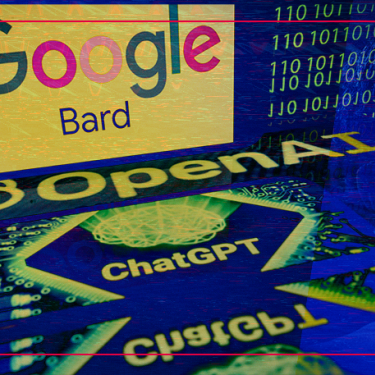Charter on AI in the media: RSF is consulting media and civil society

As part of its work on a charter regulating the use of artificial intelligence (AI) in the media, Reporters Without Borders (RSF) is inviting contributions from the media and civil society organisations, above all those specialising in the media. These contributions will help the committee created at RSF's initiative to identify appropriate responses for media professionals to the rapid deployment of AI technology.
Update: the deadline for submitting contributions has been extended to 18 October 2023.
After the creation of an international committee to work on this issue it now falls to media professionals and civil society organisations throughout the world to express their views. So that their thoughts on the application of media ethics to AI can be incorporated into the committee's work, RSF is providing them with this link to a form in which they can share their views. The deadline for submitting contributions is 11 October 2023.
“RSF would like to include media and organisations around the world as broadly as possible in a collective discussion on this subject of vital importance for the integrity of news and information. We urge civil society to take up this call to share their vision of journalistic ethics applied to artificial intelligence.”
Christophe Deloire
RSF secretary-general
The four main themes on which the AI Charter committee is working are reflected in the form, which is designed so that the media can express themselves on the same issues as the members of the committee chaired by journalist and Nobel peace laureate Maria Ressa. Each of these themes corresponds to specific challenges that the media must address. RSF asks media professionals to say what they think should be done to respond effectively:
- Information gathering: The advent of generative artificial intelligence (GAI) – the set of AI tools that can generate text, images, audio and other media content on demand – facilitates the production of synthetic content enormously. But journalists must be able to continue to identify authentic content quickly and with certainty. What tools and working methods should the media and journalists adopt to address these new challenges?
- Information processing: The growing use of AI tools in the media raises concerns about reliability, bias and data leakage. Algorithms that analyse data and generate content are liable to alter the bases of journalistic ethics. Furthermore, biases inherent in the training datasets of AI systems are amplified in the content they produce. Also, the use of AI to optimise audience reach can encourage the dissemination of narratives that favour sensationalism at the expense of balanced, nuanced reporting. Finally, the lack of transparency of AI systems also poses a problem. What characteristics should the AI systems used by journalists have, and what work procedures should be put in place to ensure that the news content produced meets the standards of quality journalism?
- Information dissemination: The ubiquitous recommendation algorithms in social media steer users in specific directions and strongly influence the visibility and dissemination of online content, while search engines direct traffic massively towards certain content at the expense of alternatives. In addition to the dangers posed by large platforms, the media themselves increasingly use sophisticated technology to disseminate content in accordance with their own interests. Search engines integrated into media websites and push mechanisms in media mobile apps could soon be reinforced by AI's power. What would be the best ways to serve the right to reliable news and information?
- Strategic positioning of media vis-à-vis AI sector companies: The news industry continues to be disrupted by platform intermediation in the dissemination of news, but now it must also grapple with the emergence of new players, the AI producers, who can both compete with them and provide them with the tools required for the production of quality news and information. How should media companies behave towards AI providers and Big Tech companies in general?
To explore these questions further, RSF is making two of the committee's working documents available to the public. The first, entitled Challenges raised by AI regarding the right to information, provides a full and detailed list of the challenges. The second, entitled AI and Media Ethics : Existing References and overview, provides an overview of the various existing ethical initiatives in AI and journalism, in order to underscore the innovative and pioneering aspects that the AI in the Media Charter project initiated by RSF intends to provide.
